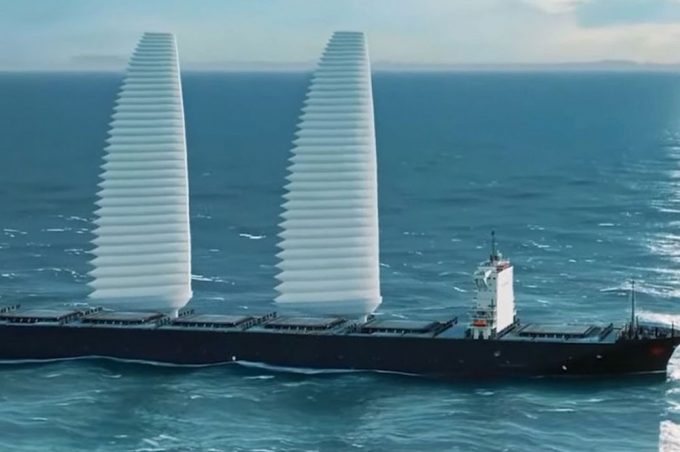Bolloré signs up, but 'more shippers must join us' in sailing ship initiative
Bolloré Logistics has announced it is joining an ambitious French initiative to carry cargo on ...

French shipper group the Association des Utilisateurs de Transport de Fret (AUTF) and France Supply Chain, which lobbies for more sustainable transport, have teamed up to promote the development of modern cargo-carrying sailing ships.
Around a dozen shippers have so far joined the Low Carbon Maritime Transport (LCMT) initiative, including well-known brands such as Michelin, Moët Hennessy, Nestlé Waters and Remy Cointreau.
They have “confirmed their willingness to transport part of their containers by this innovative means of transport, in order to reduce the environmental impact of their logistics,” France Supply Chain noted.
“Faced with environmental challenges, companies are devising solutions to enable logistics with a lower environmental impact. However, the decarbonisation of maritime transport remains a complex issue.
“Although innovative solutions, such as biofuels, can currently be deployed, they cannot be the only answer to the energy sobriety that we absolutely need at global level. Yet maritime transport is a vital part of the functioning of our economy, which is more than ever based on international trade.”
LCMT has launched a call for tenders for the operation of two weekly transatlantic routes between Europe and North America, to be operated from 2024 by containerships propelled mainly by wind power. The ambition is to reduce carbon emissions by at least half.
France Supply Chain said: “At a time when the world must reinvent itself in the face of major environmental challenges, the supply chain – the true nervous system of the economy – again bears witness to the fact that it is one of the keys to sustainable renewal.”
AUTF president, Denis Choumert told French freight publication L’Antenne that, among LCMT’s missions was to launch a tender for 12 wind-powered vessels, each to cost of around €40m. Shippers committed to wind-powered cargo vessels would offer transport contracts for a five-year period to cover construction costs.
“The ships would have a capacity of at least 500 teu and be 70% wind-powered,” he said.
On the plans for two weekly transatlantic services, Mr Choumert said: “The first will link Northern Europe with the North American east coast and the second Southern Europe and the west coast. Each route would operate with six ships, offering the same transit times as those for current transatlantic services.”
With fuel costs for conventional maritime transport expected to remain high, wind power is likely to become an increasingly competitive alternative, he believes.
Comment on this article